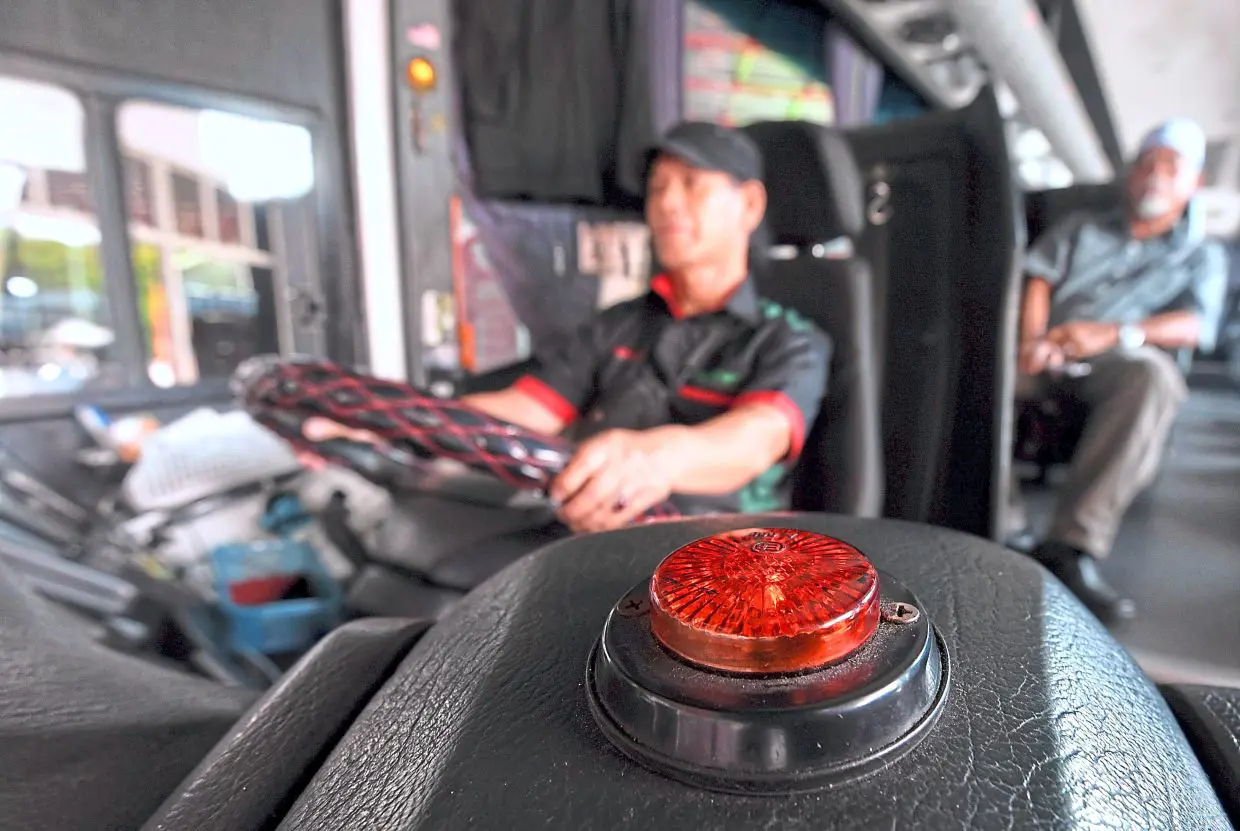 PETALING JAYA: Road safety experts have urged the government to hold firm to its October enforcement deadline for speed limiter devices on heavy vehicles, warning that poorly maintained lorries and buses pose a grave risk to public safety.
PETALING JAYA: Road safety experts have urged the government to hold firm to its October enforcement deadline for speed limiter devices on heavy vehicles, warning that poorly maintained lorries and buses pose a grave risk to public safety.
They cautioned that delays could lead to tragedies such as the Universiti Pendidikan Sultan Idris (UPSI) bus crash, and called for stiff penalties β including fines higher than compliance costs and the immediate impounding of unchecked vehicles β to ensure operators take the rules seriously.
Road safety expert Dr Law Teik Hua said voluntary compliance has been alarmingly low, with fewer than 3,000 vehicles verified in the past three months.
βGiven the risks posed by unchecked heavy vehicles, there is a strong case for zero tolerance after the October deadline,β he said when contacted yesterday.
Law warned that postponing enforcement will undermine both safety and the credibility of the authorities.
βSoftening or delaying enforcement will send the wrong signal β that deadlines are negotiable and regulators not serious. For operators, it suggests non-Βcompliance is a low-risk strategy. For citizens, it erodes confidence in the governmentβs ability to enforce safety standards,β he said.
He said penalties must be stiff to deter negligence, including hefty fines, suspension of licences for repeat offenders, and in Βserious cases, instant immobilisation of vehicles until proper checks are done.
On June 9, 15 UPSI students were killed and 33 others injured when their chartered bus collided with an MPV on the East-West Highway near Gerik, Perak.
Transport Minister Anthony Loke revealed on Wednesday that 97% of heavy commercial Βvehicles registered after Jan 1, 2015, have yet to verify that their speed Βlimiters are functional.
Of 108,805 vehicles covered under the first enforcement phase beginning Oct 1, only 2,915 (2.68%) have complied β Βincluding 62 express buses, 33 tour buses and 2,820 heavy vehicles over 3,500kg.
Road Safety Marshal Club founder and president K. Bala also backed the call for zero Βtolerance, stressing that safety must come before sympathy for industry players.
βThe road belongs to everyone β motorcyclists, car drivers, the elderly, even those with special needs. We cannot side with heavy vehicle operators and neglect Βothers,β he said.
Bala said responsibility lies not only with drivers but also with haulage companies and regulators, which he described as the β3M factorβ β man, machine and maintenance.
βThe man must be competent, licensed and drug-free; the machine must be roadworthy; and companies must ensure Βproper maintenance schedules. It always comes back to the 3M Βfactor,β he said.
He added that enforcement should be paired with advocacy, citing his clubβs training for lorry drivers and even their spouses to promote safer practices, such as ensuring drivers are well-rested before long trips.
The Federation of Malaysian Consumers Associations also urged strict action against non-compliant operators, saying the three-month grace period is more than sufficient.
Its chief executive officer Dr Saravanan Thambirajah said allowing further delays will reward irresponsible operators and expose the public to Βunnecessary risks.
βThe message should be clear: safety rules are non-negotiable and deadlines are to be Βrespected,β he said.
He added that non-compliant heavy vehicles should be barred from the roads and subjected to substantial financial penalties to deter negligence.
Meanwhile, Malaysia Trucking Federation president Datuk Ng Koong Sinn said the low number of vehicles which had been Βregistered with speed limiters was largely due to a lack of awareness among operators.
He said many had already installed the devices and obtained the necessary certificates.
βBut they did not realise that they must also register through the JPJ portal,β Ng said.



